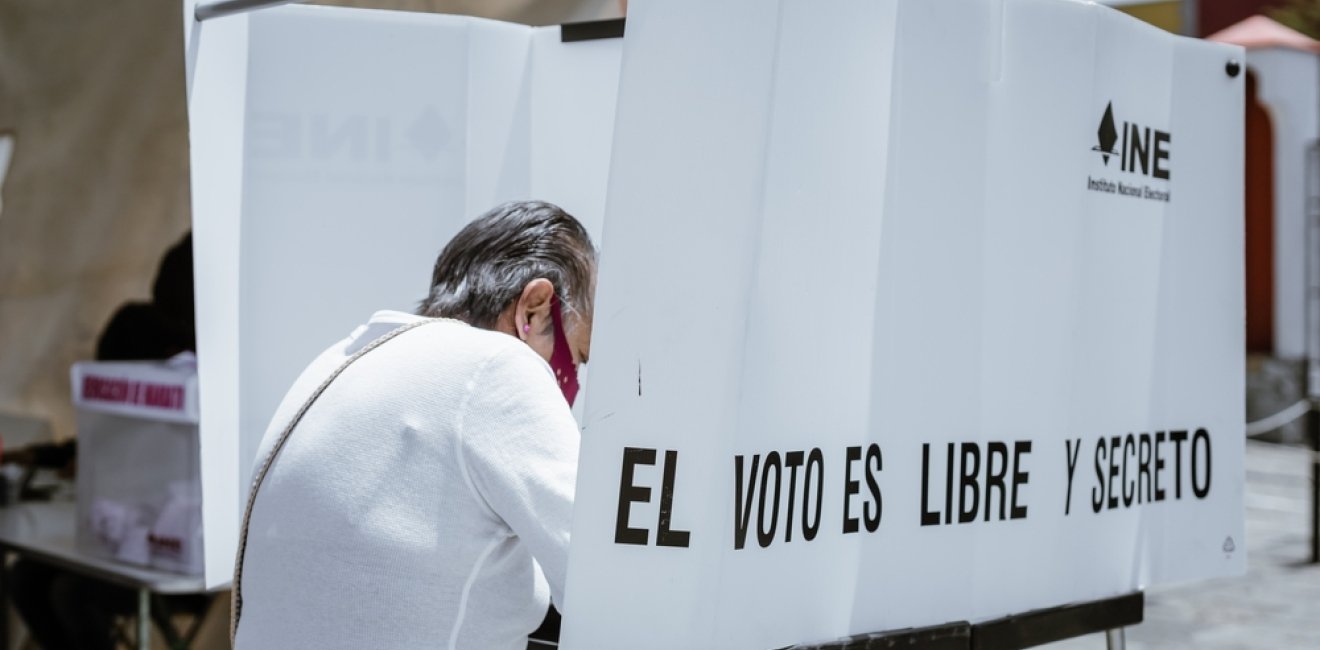Mexico’s 2024 elections will be the largest in that nation’s history, with over 20,000 posts to be filled at the municipal, state, and federal levels. Voters will choose the next president for the following single, six-year term, as well as all senators and federal congresspeople. As important as these posts may be, the far larger contingent of elected positions is those for municipal and state elections, including eight governorships (and Mexico City), state assemblies, and thousands of mayors.
Because partisan identification is relatively low in Mexico, other forms of electoral mobilization play important roles in “getting out the vote” principally, clientelism, although the nation’s electoral authorities do promote the importance of voting, and presidential coattails assist in down-ticket races. Clientelism as a form of voter mobilization has become more significant in Mexico since the onset of full democracy and the first defeat of the PRI presidential candidate in 2000, although it is difficult to measure the phenomena over time. Recent public opinion polls put the number of citizens who “know of others” who engage in clientelist exchange at roughly 35% of the overall voting population.
With greater electoral competition in conditions of low wages, informal employment, and high judicial impunity, clientelism has become a common tactic for all parties, even those who once complained bitterly about the practice. This mobilization tactic can be defined as gift-giving by politicians and brokers to less advantaged citizens in return for their votes, with the understanding that if the client does not vote for the “correct” candidate, he or she will be excluded from the future distribution of goods (Vote buying also occurs on election day in Mexican elections, but this phenomenon does not imply any future relation between the buyer and seller, and so cannot be termed clientelism).
Dr. Claudia Sheinbaum is the presidential candidate of the incumbent party, Morena, and she enjoys the complete support of the outgoing president and leader of Morena, Andrés Manuel López Obrador (AMLO), who remains popular. Sheinbaum is also supported by many constitutionally protected welfare programs that were developed during the AMLO presidency and currently reach about 71% of the population. The other major candidate, Xóchitl Gálvez, is the leader of the opposition alliance formed by the formerly antagonistic parties PAN, PRI, and PRD, which are now united against Morena and its smaller allies.
Clientelism will be handled differently by the two alliances in this election, in part because voters considering the presidential candidates can evaluate AMLO’s term and his social welfare policies which should aid the Sheinbaum campaign; while Gálvez, who holds prior experience in several posts since 2000, must rely on her charisma, criticisms of AMLO, and most likely, clientelist exchange in cities and state where opposition parties still govern, carried out by down-ticket candidates. Many federal programs cannot be easily taken away from their recipients, but the more than 19,000 public servants, called Servidores de la Nación, who are responsible for informing citizens of the federal programs and enrolling them on the lists, have been accused of manipulating poorer voters by predicting that if Gálvez wins, she will terminate this welfare assistance. Thus, the Morena candidate has almost 20,000 federal employees potentially assisting her in the campaign.
The 2024 elections are concurrent with elections for many states’ municipal posts, which are characterized by high rates of clientelism, most often carried out by candidates or politicians who have organized networks of neighborhood brokers who know their neighbors and their needs. Because states now have social programs, resources are available to politicians who are not tied to Morena (the opposition currently governs only 10 out of 32 states). During electoral campaigns, brokers receive more goods than normal from their local politicians – either municipal presidents or local deputies – to actively seek out opportunities to present their candidates, deliver needed benefits, and identify neighbors who will most likely vote “correctly.”
However, operatives for Morena are also active in the game of searching out, paying, and relying on local brokers to assure the vote; they do not depend exclusively on federal programs to bring home the victory, as was demonstrated in the recent State of Mexico elections held in June of 2023. Thus, all candidates running for executive offices as well as those competing in majority districts, will likely recur to clientelist exchange and vote buying, but the Morena presidential candidate has social programs, local operatives, and the Servidores backing her quest for the presidency.
Author


Mexico Institute
The Mexico Institute seeks to improve understanding, communication, and cooperation between Mexico and the United States by promoting original research, encouraging public discussion, and proposing policy options for enhancing the bilateral relationship. A binational Advisory Board, chaired by Luis Téllez and Earl Anthony Wayne, oversees the work of the Mexico Institute. Read more

Explore More
Browse Insights & Analysis
Greenland’s New Governing Coalition Signals Consensus

The Future of France's Far-Right Party

Ukrainian Issue in Polish Elections



